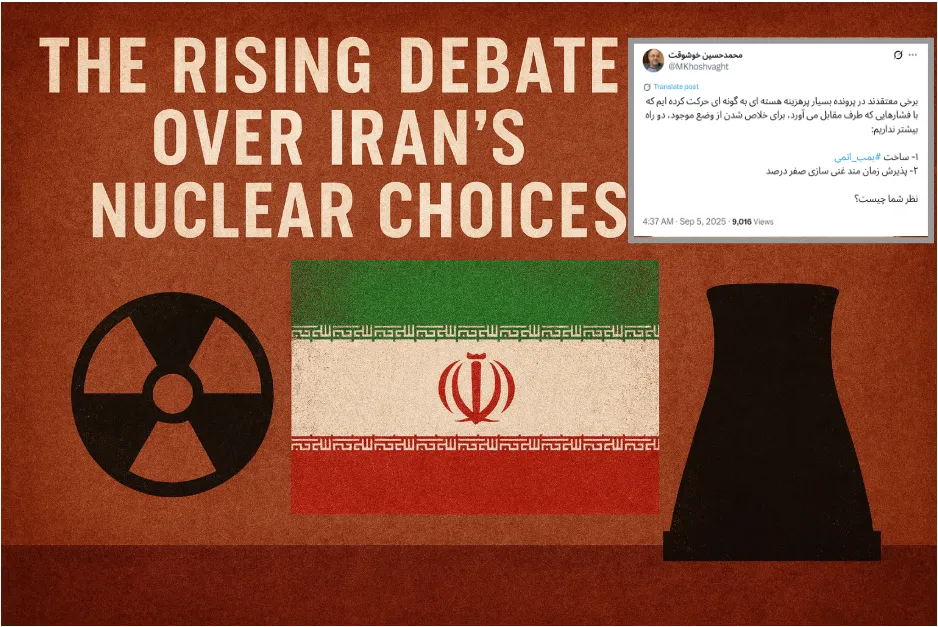
The ODNI’s 2025 threat assessment report, published before the U.S.-Israeli strikes against Iranian nuclear sites, noted that over the past year there has been an erosion of the decades-long taboo on publicly discussing nuclear weapons—a shift that has emboldened advocates of weaponization within Iran’s decision-making apparatus. Following the strikes and under the mounting pressure of the impending snapback of U.N. sanctions, however, a countercurrent has begun to emerge among segments of Iran’s political elite: why not suspend or abandon enrichment altogether to secure sanctions relief?
That countercurrent was most clearly reflected in a recent statement issued by the Reformist Front and continues to be debated among political elites and intellectual circles. It remains difficult to gauge which side holds greater sway, given the regime’s fierce pushback against any talk of suspending or abandoning enrichment—perceived by them as nothing short of blasphemous to the establishment’s strategic doctrine. What is striking, however, is that the erosion of taboos now cuts both ways—fueling voices for both weaponization and abandonment.
The broader lesson? Pressure works. From the beginning, as later confirmed by figures like Ali Motahhari, the ambition to produce a bomb was present. Yet layered counterproliferation efforts—combining covert action, sabotage, sanctions, negotiations, and credible military threats—have achieved more than delay. They have deterred Iran from crossing the nuclear threshold and revealed the regime’s true intentions. They have also bought time for diplomacy, generated invaluable intelligence, and gradually reshaped both domestic public opinion and international tolerance for stronger counterproliferation measures.